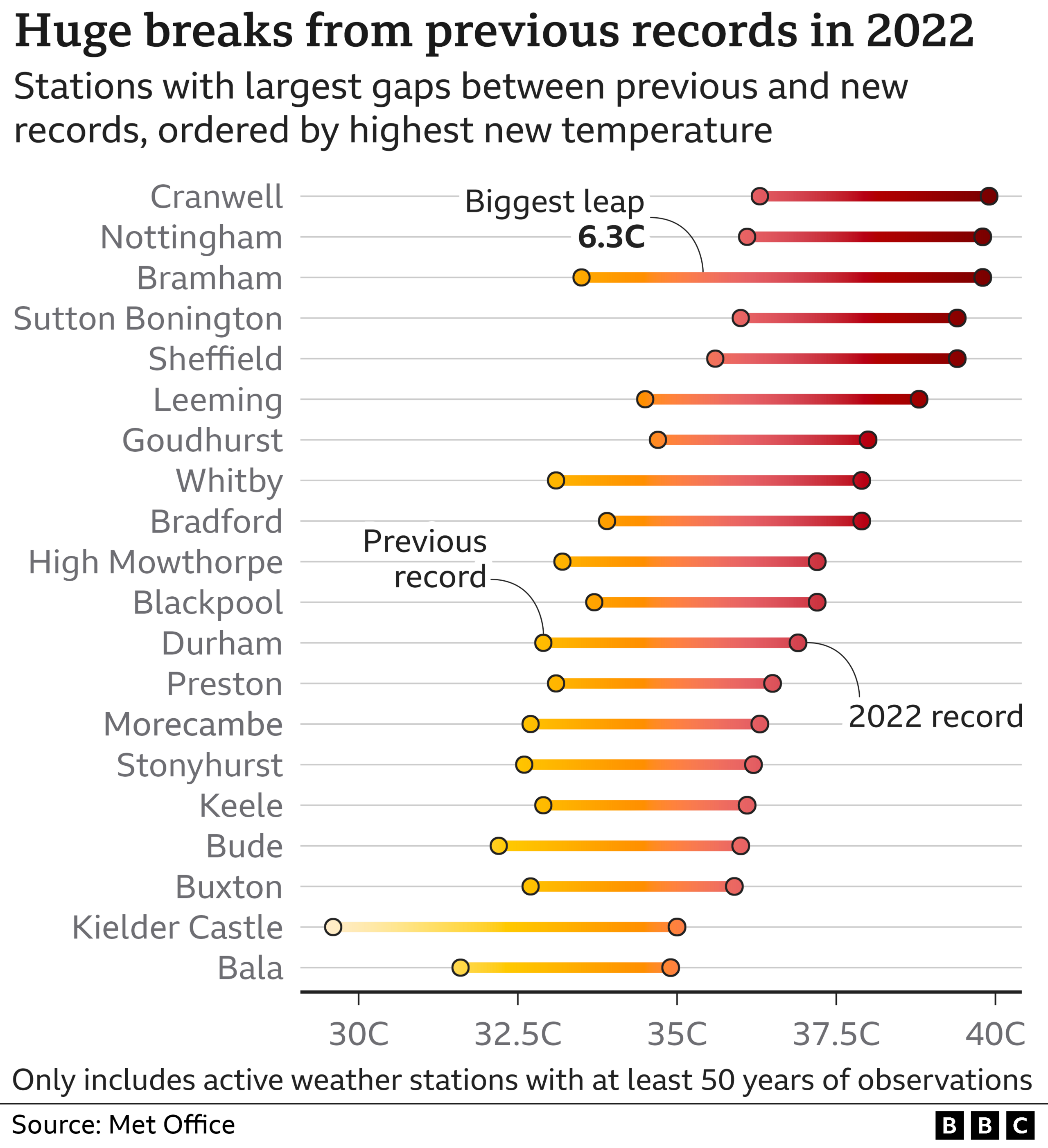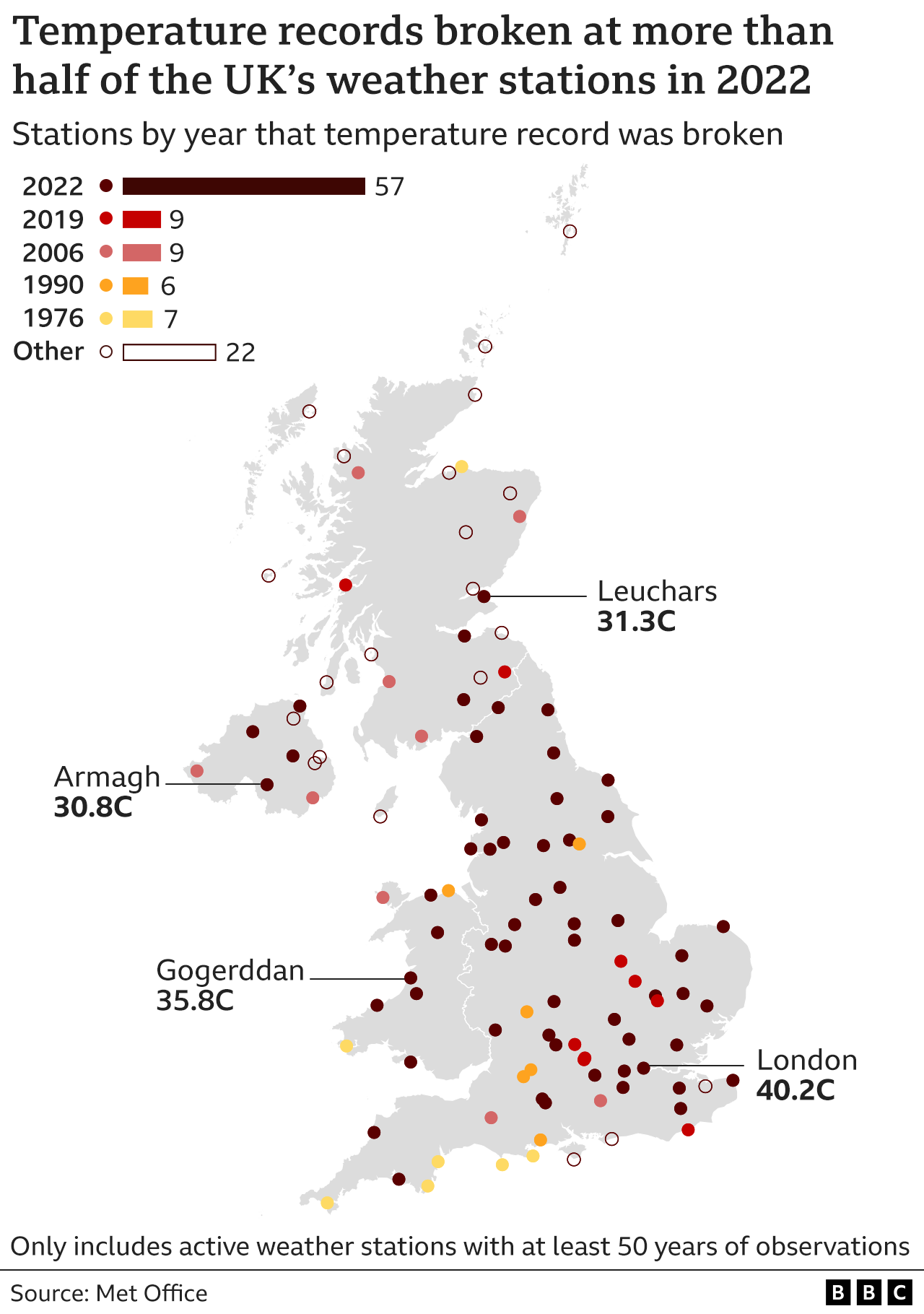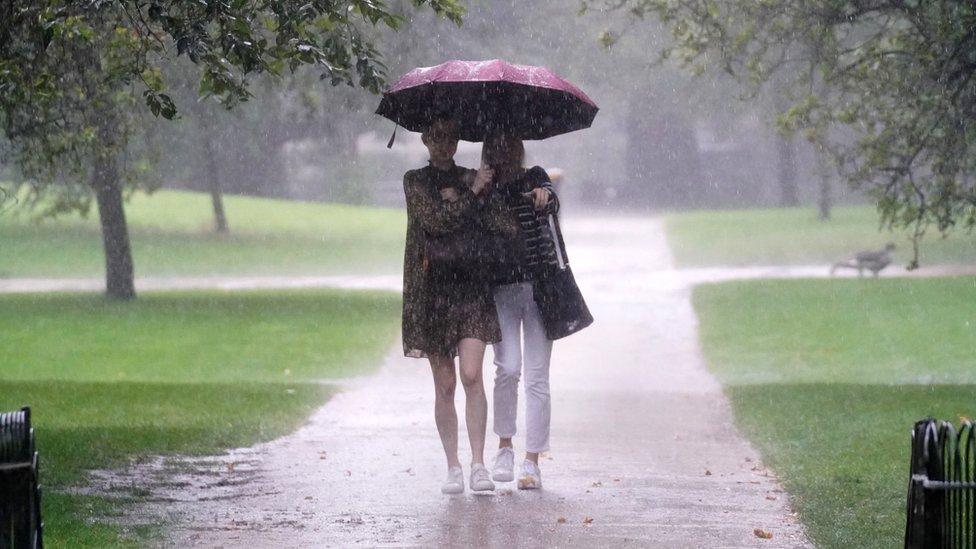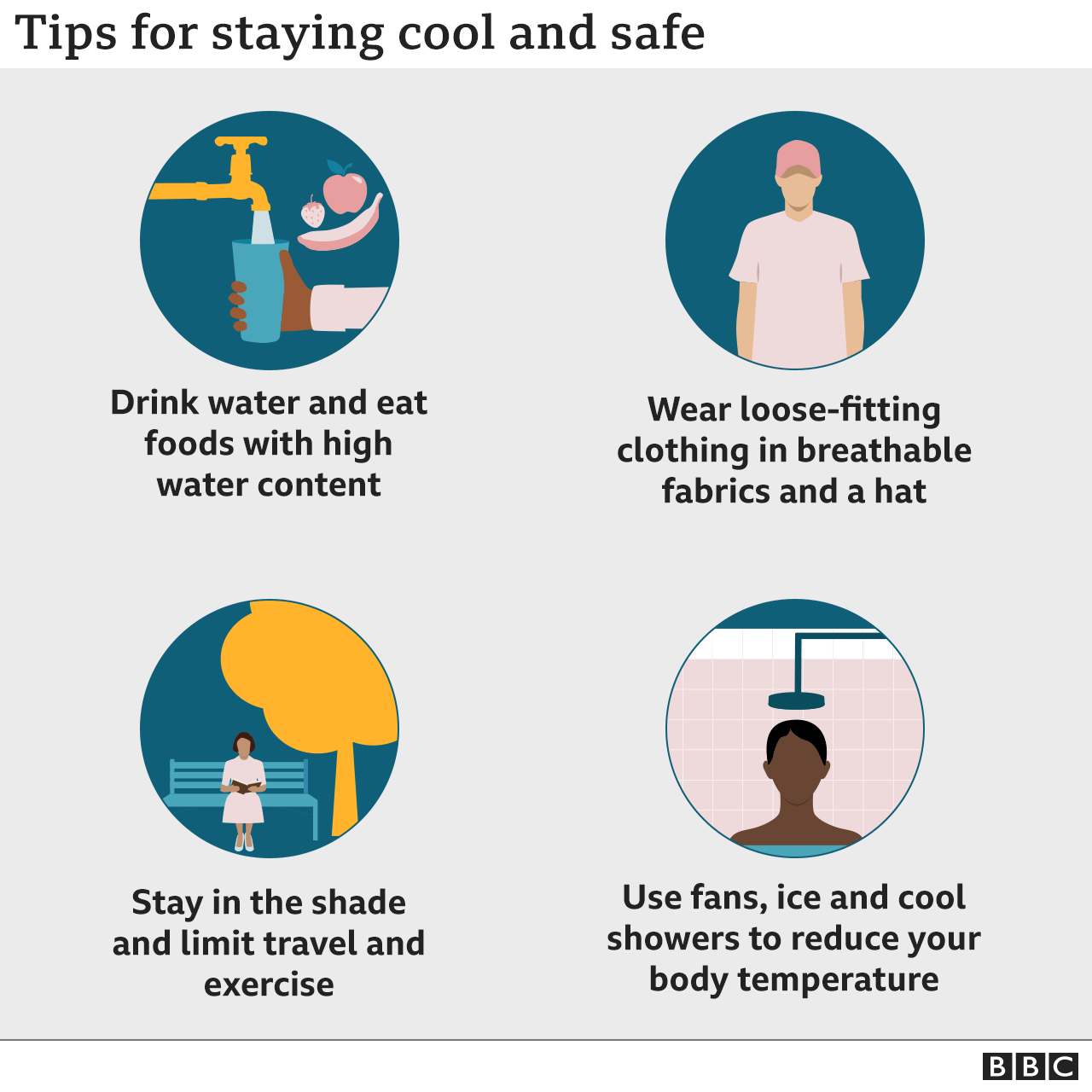Is the UK getting hotter, and what causes heatwaves?
- Published

The Met Office says hot summers are happening more frequently.
Weather readings dating back more than a century point to long-term changes in the UK's temperature.
Is the UK getting hotter?
Yes, Britain has been slowly getting warmer since the 19th Century. In the past three decades, the UK has become 0.9C warmer.
The 10 hottest years since 1884 have all happened since 2002. And none of the coldest years has been recorded this century.
In 2022 the UK smashed its highest temperature record when 40.3C was recorded at Coningsby in Lincolnshire in July.
The previous record was 38.7C in Cambridge in 2019.
More than half of the UK's oldest active weather stations recorded their hottest day ever in 2022, according to Met Office data.
The UK recorded its hottest average temperature for June on record in 2023.
The average monthly temperature of 15.8C exceeded the previous highest average June temperature, recorded in 1940 and 1976, by 0.9C.
Met Office scientists said climate change made the long period of warm weather twice as likely.

Last year was the UK's warmest year on record, with the average annual temperature exceeding 10C for the first time.
When does hot weather become a heatwave?
A heatwave is a period of hot weather where temperatures are higher than is expected for the time of year.
In the UK, the Met Office declares a heatwave when it records at least three days in a row with maximum temperatures exceeding a set temperature.
That threshold varies by county.

Heatwaves usually happen in summer when high pressure develops over an area.
They can also bring so-called "tropical nights" - when night-time temperatures fail to drop below 20C.
That can make it hard to sleep at night and the body can suffer, as it fails to sufficiently cool down.
The Met Office says it's not clear whether heatwaves are becoming more frequent because of their sporadic nature.
Why are we seeing these changes?
Climate change is causing global temperatures to rise. Greenhouse gases, like carbon dioxide, released into Earth's atmosphere in large volumes are trapping the sun's heat, causing the planet to warm.
This has brought more extreme weather, including record-breaking high temperatures across the world.
Periods of intense heat do occur within natural weather patterns, but scientists say, external that globally they are becoming more frequent, more intense and are lasting longer as a result of global warming.

The UK is also seeing more dramatic rainfall as a result of climate change
In the UK, the Met Office has warned, external that summers like 2018 are 30 times more likely now than before the Industrial Revolution - the point when humans starting producing the emissions that are responsible for climate change.
A report on climate extremes in the UK, external found that recent years have seen both higher maximum temperatures and longer warm spells.
That trend is predicted to continue. It's possible that by 2100, the UK could see 40C days every three to four years, external.
Is hot weather dangerous?
Hot weather can be dangerous particularly for the vulnerable, including elderly people, children and people with underlying health conditions.
Spending too much time in high temperatures or in the sun, can cause health issues, external such as heat stroke and cardiovascular failure.

There are also indirect effects like poorer mental health and an increase in accidents such as car crashes and drownings.
In August 2003, 20,000 people died following a heatwave in Europe lasting 10 days, according to the Met Office, external.
The higher death rate starts to kick in once the thermometer passes 25C-26C.
How do you keep cool when it's hot?
Where possible, you should modify your routine and behaviour to adapt to the heat.
If you can, travel in the morning or evening when temperatures are lower.
Wear a high-factor sunscreen and a hat if you are going to spend time in the sun.



